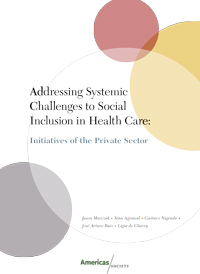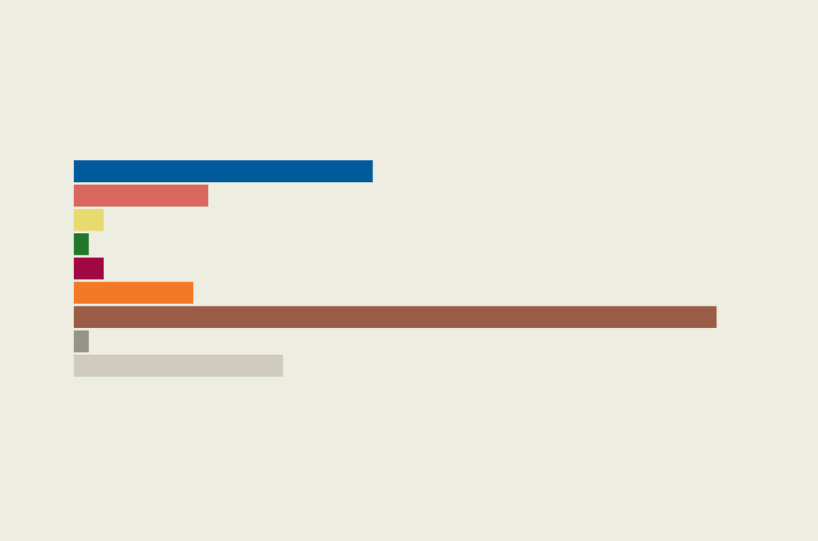Addressing Systemic Challenges to Social Inclusion in Health Care
Addressing Systemic Challenges to Social Inclusion in Health Care
A white paper released under Americas Society’s Social Inclusion Program looks at private sector efforts to expand health care access for underprivileged groups.
 This report presents the findings and conclusions of Americas Society’s (AS) Ford Foundation-funded research on health care carried out under the AS Social Inclusion Program. The goal of this paper is to draw attention to a sample of new practices that increase access to quality health care for marginalized populations and spur businesses, governments and nonprofit organizations to commit more to address this issue.
This report presents the findings and conclusions of Americas Society’s (AS) Ford Foundation-funded research on health care carried out under the AS Social Inclusion Program. The goal of this paper is to draw attention to a sample of new practices that increase access to quality health care for marginalized populations and spur businesses, governments and nonprofit organizations to commit more to address this issue.
The focus is on Colombia and Mexico, where ongoing national efforts have significantly increased health care access for those traditionally left out of the health care system. By the end of 2010, Seguro Popular had reached 42 million of Mexico’s 50 million previously uninsured, and by 2011, the subsidized regime of Colombia’s Ley 100 was providing health insurance to 11 million people who otherwise would have had no such insurance.Through in-country research and a roundtable meeting, Americas Society, leveraging its relationship with sister organization Council of the Americas (COA), looked at select cases in which the private sector is expanding access to care in each country. This report does not evaluate individual programs but rather presents a variety of health care initiatives that all have the same goal: providing care for those that otherwise would not have access to it. It is essential that we consider these cases and the lessons learned in the larger regional context.
- Download a PDF of the report.
- Lee el resumen ejecutivo del reporte en español.
- Learn more about the Americas Society Social Inclusion initiative.
Recommendations include:
- Greater utilization of information and communications technology, through eHealth and mHealth initiatives, can expand access to quality care, reduce inefficiencies and cut costs.
- A regional clearinghouse of for-profit models that serve marginalized populations can be an effective strategy for consolidating efforts.
- Regular dialogue between health ministries or local departments and the private sector is necessary to harmonize health care delivery efforts.
About the AS Social Inclusion Program
With a grant from the Ford Foundation, the Americas Society, leveraging its relationship with sister organization Council of the Americas, is working to strengthen the voice of marginalized groups by presenting new research and promoting fresh debate on how the public and private sectors can address systemic challenges to social inclusion. In addition to health care, our efforts have focused on education and market access as key determinants of economic and social mobility. Learn more about Americas Society's Social Inclusion program.






